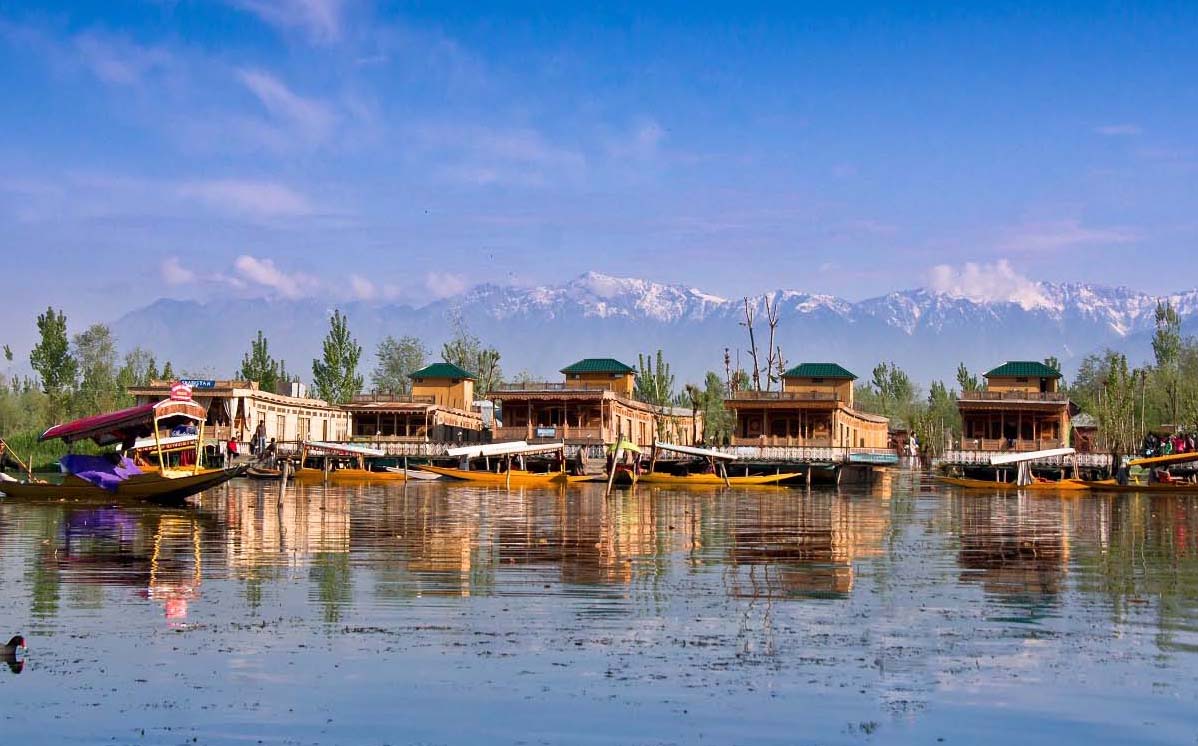The houseboats in Srinagar stand as cherished remnants of Kashmir’s heritage, captivating travellers with the allure of staying amidst the serene waters of Dal Lake and Nigeen Lake. These wooden abodes, adorned with exquisite interiors, offer a profound connection with nature. The houseboats in Kashmir are typically stationary, moored along the edges of the lakes. Jammu and Kashmir has skillfully cultivated its unique charm, transforming the region into a sought-after tourist destination. The houseboats in Srinagar epitomise this distinctiveness, allowing people to fulfil their dream of residing harmoniously with nature. Evoking the illusion of living on the water, these houseboats afford breathtaking views of the majestic Himalayas and the soothing melody of rippling waters, making them a quintessential attraction in Kashmir.
It is crucial to acknowledge that while the preservation of Dal, Nigeen, and other water bodies in Kashmir is paramount, the existing thousands of houseboats serve as a significant source of livelihood for numerous individuals. While pollutants from houseboats, including human waste, could contribute to the pollution of Dal and Nigeen lakes, they are not the sole or primary cause. The contamination often stems from adjacent localities, city sewage, and the subsequent proliferation of algae and weeds, which are the main culprits. Despite substantial financial investments and bans on the construction and repair of houseboats, the government has struggled to eliminate pollutants from Dal and Nigeen lakes.
In this age of science and innovation, the government needs to explore all possible options to address the issue of pollution from houseboats. Efforts have been made, such as attaching toilet facilities with pipes, to prevent human waste from entering the lake waters. Additionally, the cultural and aesthetic value of the houseboats cannot be overlooked. The sight of houseboats adorned with glittering lights along Boulevard Road and the banks of Nigeen Lake is a sight to behold. The renowned hospitality of houseboat owners and the unique experience of spending time on these floating accommodations have been celebrated by many writers.
The idea of halting this century-old creation in the waters of Dal and Nigeen Lakes is unfathomable. Crafted from wood, these houseboats in Kashmir provide more than just accommodation; they serve as cosy sanctuaries that shield inhabitants from the harsh cold.
Beyond mere lodgings, a ride on a shikara from a houseboat to destinations like the Mughal Gardens or Hazratbal Dargah on Dal Lake, or a journey to Hari Parbat on Nigeen Lake, offers an exceptional opportunity. These excursions capture the essence of the region, connecting visitors to its rich cultural and historical tapestry.
Considering the scenario where Boulevard Road and its surroundings are restricted from further construction and the tourist influx continues to rise, the capacity for expansion of hotels and related infrastructure is limited. Here lies an opportunity for well-planned, eco-friendly houseboats. Implementing a substantial environmental cess could fund modern sewage and solid waste treatment plants, thus addressing the waste management issue associated with houseboats. The craft of making houseboats spans centuries, and regulating tourism around Dal and Nigeen lakes might be a challenge, making it essential to think beyond conventional approaches and develop meticulously executed plans that consider the unique needs and aspirations of the region.
Trending Now
E-Paper


